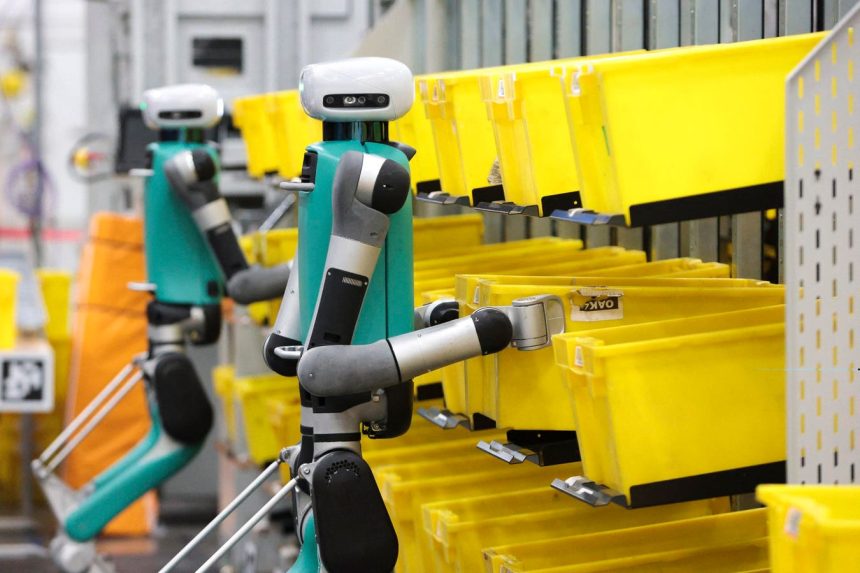1. The Rise of Agentic AI: Artificial intelligence is evolving beyond simply recognizing patterns and generating content. The next stage is the emergence of "agentic AI," software capable of independent action. These AI agents will not only learn and create but also execute tasks based on their learned knowledge. This development signifies a shift towards more autonomous AI systems, capable of managing complex processes and making decisions with minimal human intervention. 2025 will likely witness a surge in the development and deployment of such agents across various sectors, from automating intricate workflows in businesses to managing personalized experiences in consumer applications. This trend marks a significant step towards AI systems that can actively shape their environments and interact with the world in dynamic ways.
2. Transformation of Education in the Age of AI: The impact of AI on education extends beyond concerns about cheating or teacher replacement. A more fundamental shift is underway, driven by the evolving demands of the job market. As AI reshapes industries and the skills required for employment, educational institutions face increasing pressure to adapt. Graduates are struggling to secure jobs due to the widening gap between traditional curricula and the skills employers now seek. This pressure will intensify in 2025, driving a transformation in what and how students learn. We can expect to see a surge in upskilling initiatives and a greater emphasis on AI-related competencies. Educational institutions will be compelled to revise their programs, incorporating practical AI skills and fostering adaptability to navigate the rapidly changing professional landscape. This transformative process will involve a closer collaboration between educational institutions and industry to ensure alignment between curriculum and real-world needs, preparing students for the jobs of the future.
3. AI’s Expanding Role in Scientific Discovery: The awarding of two Nobel Prizes for AI-related work in 2023 underscores the profound impact of this technology on scientific advancement. While generative AI has captured public attention, significant investment is flowing into AI applications for scientific research, spanning fields from space exploration to medicine. Despite this substantial investment, the success rate of AI-discovered drugs in clinical trials remains comparable to traditionally developed drugs. Though AI holds immense potential to accelerate scientific discovery, its full realization requires further refinement and integration with existing scientific methodologies. 2025 will likely witness continued investment and progress in this domain, with AI playing an increasingly pivotal role in analyzing complex data, generating hypotheses, and accelerating the pace of scientific breakthroughs. However, the journey from AI-driven discovery to tangible real-world applications will require careful validation and rigorous testing to ensure both efficacy and safety.
4. The Growing Challenge of Data Acquisition: The availability of high-quality, ethically sourced data is becoming a critical constraint for AI development. While the sheer volume of data continues to grow, accessing data that meets the rigorous requirements of AI models is increasingly challenging. Large language models have already scraped much of the easily accessible data, necessitating new approaches to data acquisition. In 2025, we can anticipate intensified efforts to secure access to valuable data, including business partnerships for data sharing, advanced labeling systems to curate untapped datasets, and the deployment of more sophisticated sensors to gather data from the physical world. This trend highlights the growing importance of data as a strategic resource, and the need for innovative solutions to ensure its availability while upholding ethical considerations. The focus will shift towards refining data quality and developing responsible data governance frameworks to ensure the ethical and sustainable development of AI.
5. The Expansion of Robotics and Physical Automation: AI has already revolutionized software-driven tasks, driving significant cost savings and impacting employment in various sectors. Robotics represents the next frontier, extending AI’s reach into the physical domain. Combining AI with physical automation opens up vast possibilities across industries like manufacturing, surgery, agriculture, and space exploration. 2025 will likely see an expansion of existing trends in robotics, with AI-powered robots becoming more sophisticated and capable of performing increasingly complex tasks. This development will further blur the lines between the digital and physical worlds, leading to increased automation and potentially significant societal impacts, including changes in the nature of work and the demand for human labor. Addressing these implications will require thoughtful consideration of workforce development and social adaptation strategies to navigate the transition towards a more automated future.
6. Beyond Generative AI: Deeper Integrations and Domain-Specific Applications: While 2023 witnessed the rapid advancement of generative AI and large language models, the focus in 2025 will shift towards deeper integration within specific domains and industries. The initial wave of generic AI applications will pave the way for more specialized and impactful solutions tailored to address specific challenges and opportunities. This will involve closer collaboration between AI experts and domain specialists to develop AI systems that are deeply embedded within specific fields, leveraging domain-specific knowledge to achieve more meaningful outcomes. This trend will drive the evolution of AI from a general-purpose technology towards a suite of specialized tools that transform industries and accelerate progress across various sectors. The emphasis will shift from demonstrating the capabilities of AI to realizing its full potential to address real-world problems and drive tangible value in diverse applications.



